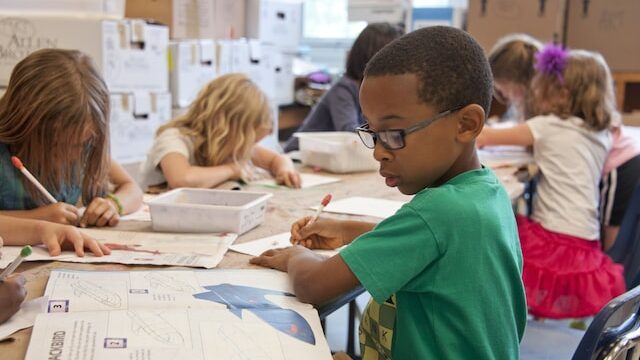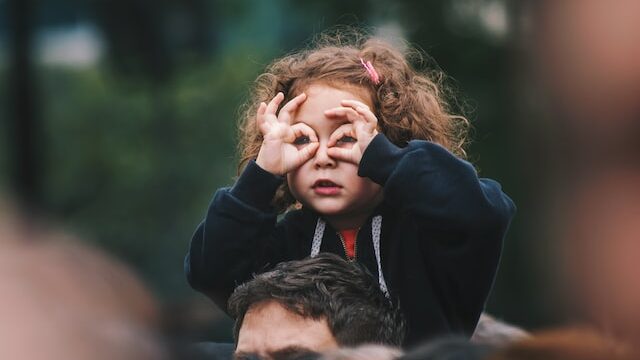ライフハックとしてではなく、英語学習にも極めて有用なのが、著名人が10分程度のプレゼンを行うTEDです。
TED Talksとは、あらゆる分野のエキスパートたちによるプレゼンテーションを無料で視聴できる動画配信サービスのことです。10年ほど前にサービスが開始されてから、政治、心理学、経済、日常生活などの幅広いコンテンツが視聴できることから人気を集めています。
RareJob English Lab
TEDは4000を超える膨大な数の動画があります。しかし慣れないうちは、動画の探し方や視聴のコツが分かりませんよね。この記事では、数多くのTEDを見てきた管理人(塩@saltandshio)が、心を揺さぶられたトークをあらすじと一緒にご紹介します。
ビジネス英会話を効率よく身につけたい方におすすめスクール
シェーン英会話
シェーンは1977年の創業以来、ネイティブ講師が英語を英語で教える「直接教授法」を採用しています。首都圏におけるスクール拠点数は、ネイティブ講師の英会話スクールでNo.1。駅から近いスクールが多いので通いやすく時間を有効に使えます。
スピークバディ パーソナルコーチング
1日1時間の短期集中トレーニングで、あなたの英語力向上をコーチが全力でサポートします。あなたの英語の世界が、劇的に変わります。
ロバート・グプタ: 音楽と医学の間で
ロバート・グプタは、医師になるべきかバイオリン奏者になるべきか思い悩んでいた時、自分の進路はその中間にあるのだと気づきました。手にはバイオリンを持ち、心には社会的公正の意識を抱いて進むことにしたのです。社会の周縁にいる人々と、従来の医学では上手くいかない領域で成果を上げている音楽療法の力について語った感動的なスピーチです(約7分半)。
[PR]無料体験レッスン受付中!子どもから大人、高齢者の方も大歓迎!【椿音楽教室】音楽の道に進むか、医学をとるか
ハーバード大学で、音楽と脳の研究をしているゴットフリード・シュラーグ博士という方がいます。優れた神経科学者で、メロディック・イントネーション・セラピーという、今では広く使われている音楽療法の主唱者です。
博士は、脳梗塞を起こした患者が失語症になり、3,4語の文章ですら発することができなくても、曲の歌詞なら歌えるということに研究を続けていく中で気が付きます。ハッピーバースデーなどの簡単な歌や、お気に入りの歌がそれです。
その仕組みとは、70時間にもおよぶ歌の集中レッスンを受けると、音楽が患者の脳神経をつなぎ直し、代替的な言語中枢を右脳に作り出し、損傷を受けた左脳を補完してしまうのです。そのことをガブリエル・ギフォーズ下院議員のYouTube動画を見て、ロバート・グプタは思い出しました。
じつは、ロバート・グプタは17歳のときに、ゴットフリード・シュラーグ博士の研究室を訪れていました。そこで、音楽が物理的に脳にトラブルがある人だけでなく、心に傷を負った人までも癒し、さらに後期アルツハイマー病の患者でもピアノの前に座ると子どもの頃に学んだショパンの曲を演奏することができる……というような話を博士から聞いたのです。
そして、17歳のロバート・グプタがゴットフリード・シュラーグ博士のもとを訪れたのは、もうひとつ理由がありました。それは、自身の進路について相談するためでした。
[PR]無料会員登録。あなたにぴったりのカウンセラーに出会える! ココナラの【心のお悩み相談】今しかできないことを選ぶ
この時、ロバート・グプタは音楽の道に進むか、医学の道に進むか悩んでいました。
ロバート・グプタは、医者となって人々を救いたいという大きな夢を持っていました。一方で、彼は幼い頃からバイオリンを習っていました。その腕は、オーケストラと一緒に演奏できるほどで、ロバート・グプタにとってはどちらの道も捨てがたい夢だったのです。
ゴットフリード・シュラーグ博士は、優れた神経科学者である前にひとりのオルガン奏者でもありました。博士は、ウィーン音楽院にまで進んで音楽を学んだものの、医学の道に進むためにその道を諦めた人だったのです。
ロバート・グプタは、ゴットフリード・シュラーグ博士に「その結論を下すのは、どんな気持ちだったのですか?」と聞きます。そう聞かずにはいられなかったのです。まさに、いまの自分と同じ状況だったのですから。
[PR]検定試験合格者累計140万人!スマホ対応☆国家資格ほか資格取得ならSMART合格対策講座音楽を選んだことで見えてきた道
若いロバート・グプタに、ゴットフリード・シュラーグ博士はこう答えます。
「当時に戻って、昔のようにオルガンを弾きたくなることもある。君にとって、医大は後からでも行くことができるが、バイオリンはそうはいかないよ」
この言葉が、ロバート・グプタの背中を押します。その後、ロバート・グプタは2年間音楽の勉強に打ち込みます。そして、ロサンゼルス・フィルのオーディションを受けると、見事に合格したのです。
演奏を続けていく中で、ロバート・グプタはある音楽家に出会います。ジュリア―ド出身のコントラバス奏者であるナサニエル・エアーズです。ナサニエルはジュリア―ドで音楽を学びましたが、精神病を患い向精神薬の治療を受けたのちに、いまはロサンゼルスの中心部にあるスキッド・ロウで路上生活していました。
ナサニエルは、「路上のソリスト」として書籍化・映画化されて話題になった人でした。
ナサニエルと出会ったロバート・グプタは、二人がバイオリンを持っていればどこでもレッスンしてくれるという約束をします。そのなかで、ロバート・グプタは音楽がナサニエルを統合失調症の発作の兆しに思える暗い深みから救い出す様を何度も目にします。
ナサニエルと交流していく中で、ロバート・グプタにとって音楽はより深い意味を持つようになりました。そして、ナサニエルのように精神疾患を抱えているからといって、素晴らしい音楽家が路上生活をおくらなければいけない現状に、怒りを覚えるようになります。
次第にロバート・グプタは、ナサニエルと同じような経験をしている人が、いったいどれほどいるだろうと考えるようになりました。
[PR]まずは無料カウンセリング”続けるため”の オンライン英語コーチ「スピークバディ パーソナルコーチング」まとめ:音楽で人々の心を照らす
その時、ロバート・グプタに天啓のようなものが降りてきます。
この、スキッド・ロウに必要なのはディズニー・ホールで演奏する自分のような音楽家ではなく、ポール・ファーマーのような貧困層のために活動し続けた医療従事者なのだと。
音楽は、ロバート・グプタとゴットフリード・シュラーグ博士を結びつけました。そして、ナサニエルと自分の世界を取り持ってくれました。ロバート・グプタは、人々の心を救う道具を既にその手に持っていたのです。
ロバート・グプタは、ナサニエルから学んだことに後押しされて、スキッド・ロウで「ストリート・シンフォニー」という団体を作ります。暗闇に音楽の光をもたらす活動を始めたのです。
ストリート・シンフォニーは、スキッロ・ロウの路上や救護施設に暮らすホームレスの人たち、PTSD(心的外傷後ストレス障害)に悩む退役軍人・囚人や、触法精神障害者とされた人たちのための演奏会をはじめました。
そこで、ロバート・グプタは音楽の力によって多くの人々が救われて行く様子を目の当たりにします。音楽の大きな癒しの力は、エンターテインメントを超えた力です。音楽が表すのは、美学上の美しさだけではないとロバート・グプタは言います。
音楽は絶望を希望に変える力がある。
選んだ道が音楽であっても医学であっても、自分のやろうとしている事は同じ意味を持つものだとロバート・グプタは気が付いたのです。さいごに、ロバート・グプタは聴衆に向かって、内からの癒しを後押ししたいのであれば、自らのコミュニティや観客にこのことをまず伝えなければなりませんと、語りかけます。
そして、ロバート・グプタの演奏によって、この素晴らしいトークは幕を下ろすのでした。
英語全文
Thank you very much. Thank you. It’s a distinct privilege to be here.
<全文を読む>▼クリック▼
Seeing this video of Gabby Giffords reminded me of the work of Dr. Gottfried Schlaug,one of the preeminent neuroscientists studying music and the brain at Harvard, and Schlaug is a proponent of a therapy called Melodic Intonation Therapy, which has become very popular in music therapy now. Schlaug found that his stroke victims who were aphasic, could not form sentences of three- or four-word sentences, but they could still sing the lyrics to a song, whether it was “Happy Birthday To You” or their favorite song by the Eagles or the Rolling Stones. And after 70 hours of intensive singing lessons, he found that the music was able to literally rewire the brains of his patients and create a homologous speech center in their right hemisphere to compensate for the left hemisphere’s damage.
When I was 17, I visited Dr. Schlaug’s lab, and in one afternoon he walked me through some of the leading research on music and the brain — how musicians had fundamentally different brain structure than non-musicians, how music, and listening to music, could just light up the entire brain, from our prefrontal cortex all the way back to our cerebellum, how music was becoming a neuropsychiatric modality to help children with autism, to help people struggling with stress and anxiety and depression, how deeply Parkinsonian patients would find that their tremor and their gait would steady when they listened to music, and how late-stage Alzheimer’s patients, whose dementia was so far progressed that they could no longer recognize their family, could still pick out a tune by Chopin at the piano that they had learned when they were children.
But I had an ulterior motive of visiting Gottfried Schlaug, and it was this: that I was at a crossroads in my life, trying to choose between music and medicine. I had just completed my undergraduate, and I was working as a research assistant at the lab of Dennis Selkoe, studying Parkinson’s disease at Harvard, and I had fallen in love with neuroscience. I wanted to become a surgeon. I wanted to become a doctor like Paul Farmer or Rick Hodes, these kind of fearless men who go into places like Haiti or Ethiopia and work with AIDS patients with multidrug-resistant tuberculosis, or with children with disfiguring cancers. I wanted to become that kind of Red Cross doctor, that doctor without borders. On the other hand, I had played the violin my entire life.
Music for me was more than a passion. It was obsession. It was oxygen. I was lucky enough to have studied at the Juilliard School in Manhattan, and to have played my debut with Zubin Mehta and the Israeli philharmonic orchestra in Tel Aviv, and it turned out that Gottfried Schlaug had studied as an organist at the Vienna Conservatory, but had given up his love for music to pursue a career in medicine. And that afternoon, I had to ask him, “How was it for you making that decision?”
And he said that there were still times when he wished he could go back and play the organ the way he used to, and that for me, medical school could wait, but that the violin simply would not. And after two more years of studying music, I decided to shoot for the impossible before taking the MCAT and applying to medical school like a good Indian son to become the next Dr. Gupta. (Laughter) And I decided to shoot for the impossible and I took an audition for the esteemed Los Angeles Philharmonic. It was my first audition, and after three days of playing behind a screen in a trial week, I was offered the position. And it was a dream. It was a wild dream to perform in an orchestra, to perform in the iconic Walt Disney Concert Hall in an orchestra conducted now by the famous Gustavo Dudamel, but much more importantly to me to be surrounded by musicians and mentors that became my new family, my new musical home.
But a year later, I met another musician who had also studied at Juilliard,one who profoundly helped me find my voice and shaped my identity as a musician. Nathaniel Ayers was a double bassist at Juilliard, but he suffered a series of psychotic episodes in his early 20s, was treated with thorazine at Bellevue, and ended up living homeless on the streets of Skid Row in downtown Los Angeles 30 years later. Nathaniel’s story has become a beacon for homelessness and mental health advocacy throughout the United States, as told through the book and the movie “The Soloist,” but I became his friend, and I became his violin teacher, and I told him that wherever he had his violin, and wherever I had mine, I would play a lesson with him.
And on the many times I saw Nathaniel on Skid Row, I witnessed how music was able to bring him back from his very darkest moments, from what seemed to me in my untrained eye to be the beginnings of a schizophrenic episode. Playing for Nathaniel, the music took on a deeper meaning, because now it was about communication, a communication where words failed, a communication of a message that went deeper than words, that registered at a fundamentally primal level in Nathaniel’s psyche, yet came as a true musical offering from me. I found myself growing outraged that someone like Nathaniel could have ever been homeless on Skid Row because of his mental illness, yet how many tens of thousands of others there were out there on Skid Row alone who had stories as tragic as his, but were never going to have a book or a movie made about them that got them off the streets? And at the very core of this crisis of mine, I felt somehow the life of music had chosen me, where somehow, perhaps possibly in a very naive sense, I felt what Skid Row really needed was somebody like Paul Farmer and not another classical musician playing on Bunker Hill.
But in the end, it was Nathaniel who showed me that if I was truly passionate about change, if I wanted to make a difference, I already had the perfect instrument to do it, that music was the bridge that connected my world and his.
There’s a beautiful quote by the Romantic German composer Robert Schumann, who said, “To send light into the darkness of men’s hearts, such is the duty of the artist.” And this is a particularly poignant quote because Schumann himself suffered from schizophrenia and died in asylum. And inspired by what I learned from Nathaniel, I started an organization on Skid Row of musicians called Street Symphony, bringing the light of music into the very darkest places, performing for the homeless and mentally ill at shelters and clinics on Skid Row, performing for combat veterans with post-traumatic stress disorder, and for the incarcerated and those labeled as criminally insane.
After one of our events at the Patton State Hospital in San Bernardino, a woman walked up to us and she had tears streaming down her face, and she had a palsy, she was shaking, and she had this gorgeous smile, and she said that she had never heard classical music before, she didn’t think she was going to like it, she had never heard a violin before, but that hearing this music was like hearing the sunshine, and that nobody ever came to visit them, and that for the first time in six years, when she heard us play, she stopped shaking without medication.
Suddenly, what we’re finding with these concerts, away from the stage, away from the footlights, out of the tuxedo tails, the musicians become the conduit for delivering the tremendous therapeutic benefits of music on the brain to an audience that would never have access to this room, would never have access to the kind of music that we make. Just as medicine serves to heal more than the building blocks of the body alone, the power and beauty of music transcends the “E” in the middle of our beloved acronym. Music transcends the aesthetic beauty alone. The synchrony of emotions that we experience when we hear an opera by Wagner, or a symphony by Brahms, or chamber music by Beethoven, compels us to remember our shared, common humanity, the deeply communal connected consciousness, the empathic consciousness that neuropsychiatrist Iain McGilchrist says is hard-wired into our brain’s right hemisphere. And for those living in the most dehumanizing conditions of mental illness within homelessness and incarceration, the music and the beauty of music offers a chance for them to transcend the world around them, to remember that they still have the capacity to experience something beautiful and that humanity has not forgotten them. And the spark of that beauty, the spark of that humanity transforms into hope, and we know, whether we choose the path of music or of medicine, that’s the very first thing we must instill within our communities, within our audiences, if we want to inspire healing from within.
I’d like to end with a quote by John Keats, the Romantic English poet, a very famous quote that I’m sure all of you know. Keats himself had also given up a career in medicine to pursue poetry, but he died when he was a year older than me. And Keats said, “Beauty is truth, and truth beauty. That is all ye know on Earth, and all ye need to know.”
<閉じる>
\ ほかにも気になるトークが満載! /







